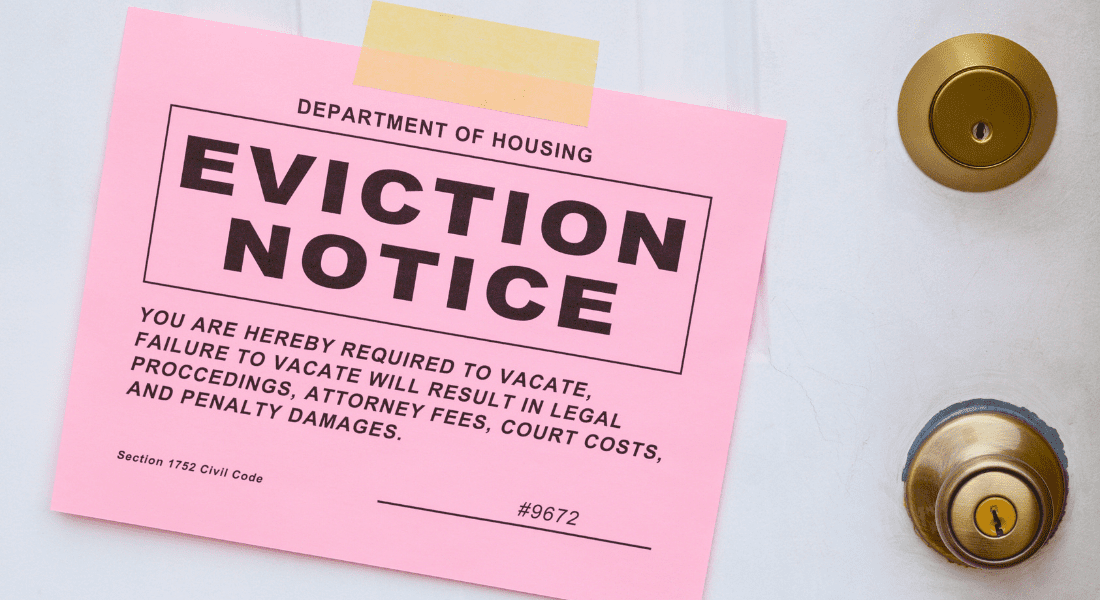Eviction is a challenging process, both for landlords and tenants, and understanding the eviction process in Tennessee is essential for navigating it successfully. In this comprehensive guide, we’ll delve into the intricacies of eviction, providing landlords and tenants with valuable insights and practical tips. Whether you’re a landlord facing difficulties with a tenant or a tenant unsure of your rights during an eviction, read this blog to gain a better understanding of the eviction process in Tennessee.
Table of Contents
ToggleUnderstanding Eviction: What You Need to Know
What is Eviction and Why Does it Happen?
Eviction is the legal process of removing a tenant from a rental unit. It typically occurs when a tenant breaches the terms of their rental agreement, such as failing to pay rent or violating lease terms. Landlords may initiate eviction proceedings to regain possession of their property and enforce lease agreements.
Paying rent on time is crucial to avoid eviction proceedings. Property management companies often facilitate rent collection processes to ensure tenants meet their financial obligations promptly. This helps maintain a stable rental income for property owners and reduces the likelihood of legal actions such as evictions.
- Non-payment of Rent: One of the most common reasons for eviction. When tenants fail to pay rent on time, landlords may start eviction proceedings.
- Lease Violations: This includes actions such as having unauthorized occupants or pets, causing significant property damage, or tenant commits in illegal activities on the premises.
- Health and Safety Violations: If tenants create health or safety hazards, such as failing to dispose of garbage properly or causing infestations, landlords may file for eviction.
- Property Damage: Significant or intentional damage to the property by the tenant can lead to eviction to prevent further harm to the property.
- Nuisance: Consistent disturbances, such as excessive noise or disruptive behavior, can also be grounds for eviction if they affect the peace and safety of other tenants or neighbors.

Insights:
- Eviction Rates in Tennessee: According to Eviction Lab, Tennessee has an eviction rate of 5.2%, which is higher than the national average of 3.6%.
- Time for Eviction Process: As stated by Doorloop, the average eviction process in Tennessee takes about 4-6 weeks.
- Cost of Eviction for Landlords: According to iPropertyManagement, the average cost of eviction for landlords in Tennessee is around $3,500.
- Landlord-Tenant Mediation: Tennessee Supreme Court’s DR-26 Alternative Dispute Resolution Program here offers free mediation services to help landlords and tenants resolve disputes without going to court.
Overview of Tennessee Landlord-Tenant Eviction Laws
Landlord’s Right to Written Notice for Eviction in Tennessee
If a landlord wants to evict a tenant, they must first provide the tenant with a 30-day written notice of the termination of the lease. If there is no lease, the landlord can ask the tenant to move at any time, as long as written notice is given. However, the landlord only needs to provide a 14-day notice if a similar act of noncompliance recurs within six months.
If the tenant or someone on the premises with the tenant’s consent threatens the health, safety, or welfare of other tenants or persons on the premises, the landlord may give the tenant just a three-day written notice. Even with the short notice period under the “threat to health/safety” provision, the landlord must still go to court to proceed with an eviction. If the tenant waives the written notice, the landlord may immediately file a detainer warrant upon a breach of the agreement for failure to pay rent.
The Eviction Process: Step-by-Step
- Notice to Quit: The eviction process in Tennessee typically begins with the landlord serving the tenant with a written notice to quit, informing them of the lease violation and providing a specified period to remedy the issue or vacate the premises.
- Filing an Eviction Lawsuit: If the tenant fails to comply with the notice to quit, the landlord may file an eviction lawsuit using certified mail to the appropriate court.
- Court Hearing: Both the landlord and tenant will have the opportunity to present their case in general sessions court. A judge will then make a ruling based on the evidence presented.
- Writ of Possession: If the judge rules in favor of the landlord, they will issue a writ of possession, allowing the landlord to regain possession of the property.
- Enforcement: With the writ of possession, the landlord can work with law enforcement to forcibly remove the tenant from the rental unit if they refuse to leave voluntarily.
Key Considerations for Landlords and Tenants
Landlord Responsibilities During Eviction
- Providing proper written notice to the tenant.
- Following legal procedures and documentation requirements.
- Maintaining clear communication with the tenant throughout the process.
- Ensuring compliance with fair housing laws and regulations.
Tenant Rights During Eviction
- The right to receive proper written notice before eviction proceedings begin.
- The opportunity to present their case in court and defend against eviction.
- The right to seek legal counsel and representation during eviction proceedings.
- Protection against unlawful eviction practices, such as “self-help” evictions.
Seeking Professional Guidance
Connerth & Co: Your Trusted Property Management Partner in Clarksville
Conclusion
FAQ: Understanding Eviction in Tennessee
What is the eviction process in Tennessee?
Tennessee eviction process usually starts when the landlord gives the tenant a written eviction notice to quit. This notice tells the tenant about the lease violation and gives them time to fix it or leave. If the tenant doesn’t follow the notice, the landlord can file an eviction lawsuit in court.
Both sides get to tell their side of the story in court, and the judge decides based on the evidence. If the judge agrees with the landlord, they’ll issue a writ of possession. This allows the landlord to evict the tenant, with the help of law enforcement if needed, if the tenant doesn’t leave on their own.
How long does it take for an eviction to show up on your record in Tennessee?
Can you fight an eviction in Tennessee?
What is a 7-day notice to vacate in Tennessee?
A 7-day notice period to vacate in Tennessee is given by landlords to tenants for lease violations. It tells tenants they have seven days to fix the issue or leave. If they don’t comply, landlords can proceed with the eviction. There’s also a 14-day notice period for repeat violations within six months of the first notice. And Tenants should act quickly to avoid eviction.
What is Uniform Residential Landlord Tenant Act (URLTA)?
The Uniform Residential Landlord and Tenant Act applies to most rental agreements in Tennessee and outlines the rights and responsibilities of both landlords and tenants.
Some key points tenants should be aware of include:
- Landlords cannot require renters to waive their rights under the URLTA in a lease agreement.
- Landlords must advise tenants in writing that they are not responsible for the renter’s personal belongings.
- Renters have a 5-day grace period to pay rent before a late fee can be charged.
- Security deposits must be placed in a separate account and the landlord must provide the tenant with a list of any damages they intend to deduct from the deposit.




